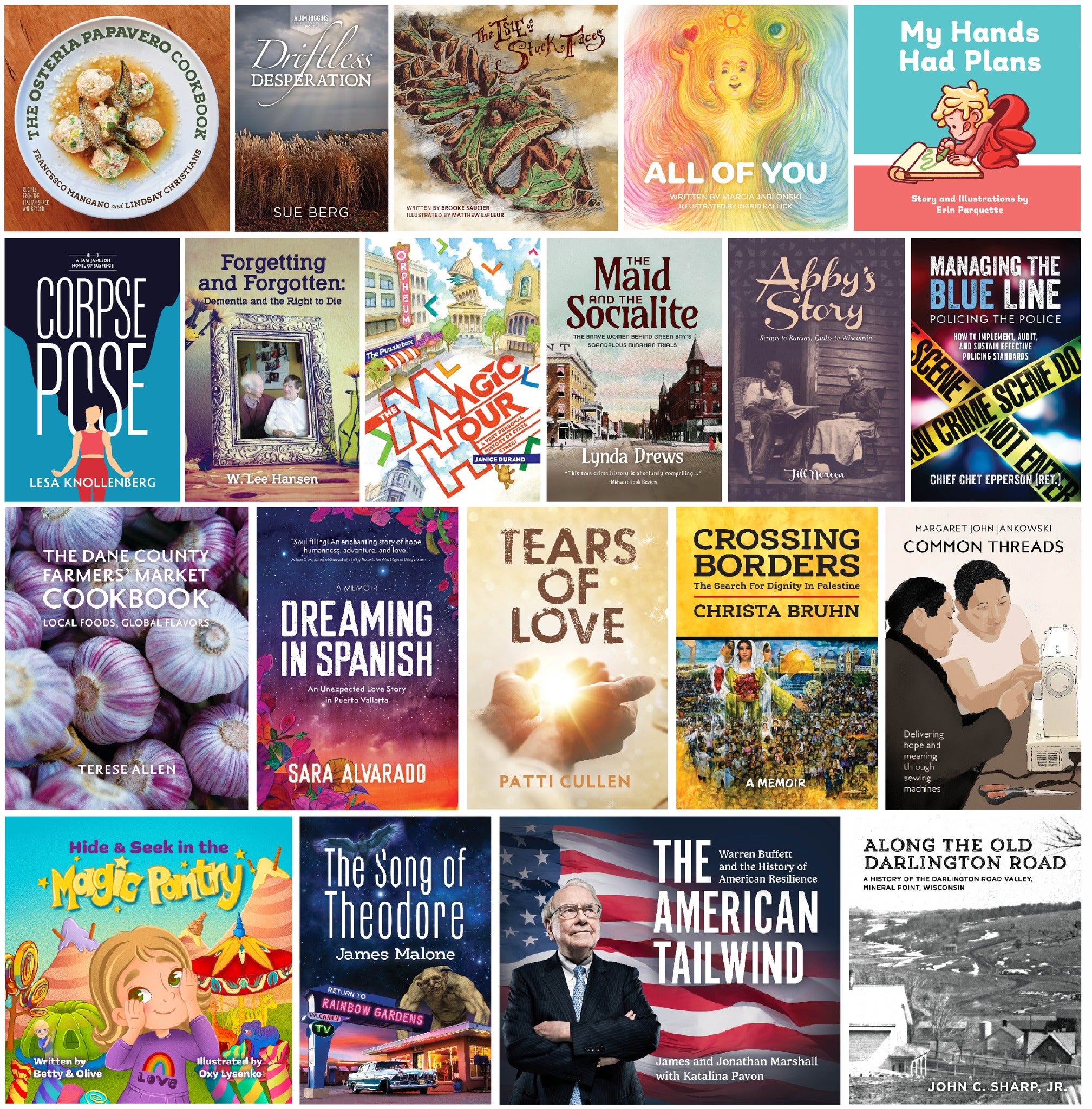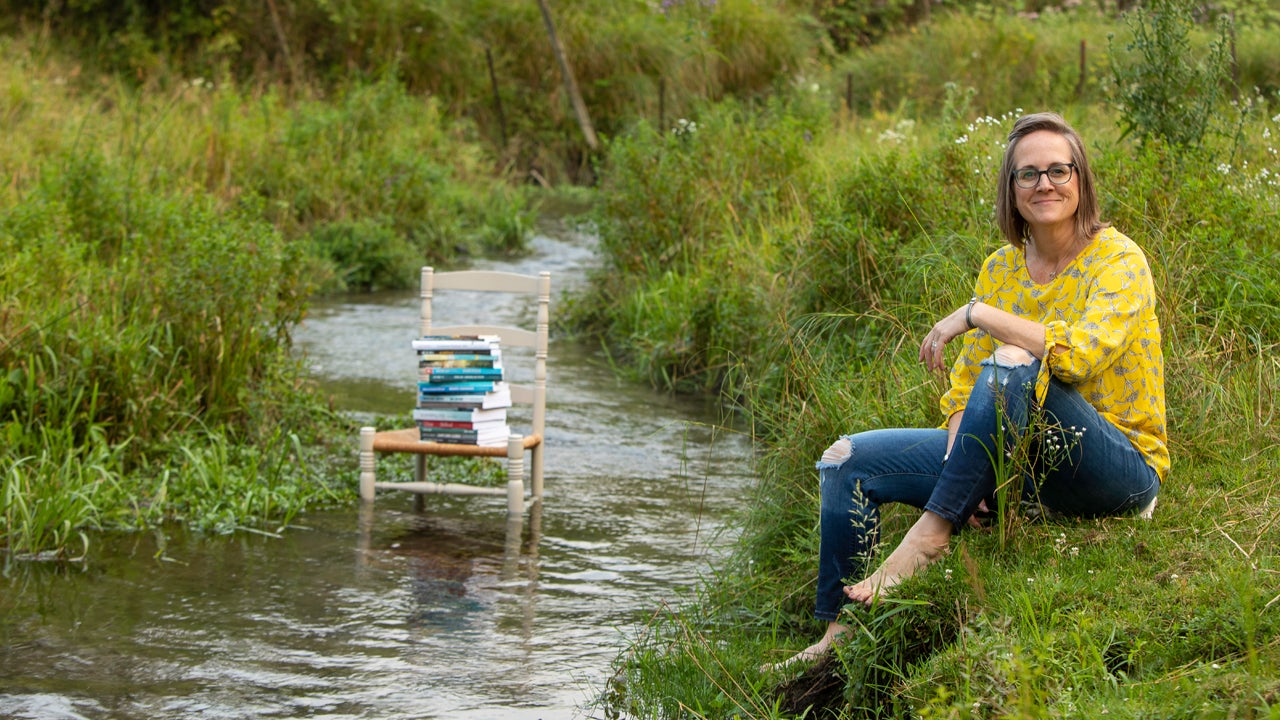In Wisconsin each year, dozens of books come from independent publishers that work to lift up Midwestern voices.
According to Publishers Weekly, more authors are seeking small, independent publishers to take their work from manuscript to the shelf.
And that’s providing more competition for what are known as “The Big Five.” These publishers make up majority of bestselling books in the United States: Macmillan Publishers, HarperCollins Publishers, Penguin Random House, Hachette Book Group and Simon & Schuster.
Stay informed on the latest news
Sign up for WPR’s email newsletter.
WPR spoke with two independent Wisconsin publishers to learn more about the process of publishing a book outside “The Big Five.”
Although the process varies, they agree aspiring authors have four main questions to ask themselves.
1: Can you find a publisher you trust?
Some publishers in Wisconsin specialize in niche genres and topics including children’s nature books and medical physics. Shields Publications in Eagle River, for example, specializes in material on earthworms.
So, it is important to find a publisher that fits the author and the author’s needs, Ross Tangedal, a professor and director of Cornerstone Press at the University of Wisconsin-Stevens Point, told WPR’s “Wisconsin Today.”

“An author needs to work with a publisher they can trust and wants to work with for an extended period. Trust is key,” he said.
The trust Tangedal builds with authors helps with the editing process. He aims to develop a similar level of trust with his students.
Cornerstone is one of five student-staffed presses in the United States and has been around for more than 40 years. Students are involved in every department, including editorial, production and marketing.
Tangedal said the big difference between independent publishers and “The Big Five” is there’s often no agent and publishers are working directly with authors.
“Right away there’s this connection between the publisher, the acquiring team and the author … as opposed to sometimes with agents, it’s like there’s a middle person and it’s hard to find that initial relationship with the writer,” Tangedal said.
2: Are you open to constructive feedback?
Kristin Mitchell is the owner and founder of Little Creek Press in Mineral Point, and said one of her most important duties is managing author expectations.
She sometimes receives hundreds of manuscripts a year from authors. Most get an editorial assessment from her team. The process includes asking questions such as: “Does the manuscript align with the publisher’s niche? Is it well written? How much or how little editing is required? What is the market like for this type of book?”

Mitchell said each step along the way, her team can offer the author feedback. Some books need a strong edit and most need copy editing and detailed eyes. But not every author is interested in that.
“If they’re too rigid and really feel that their book is the best that it can be as it stands, then (they’re) most likely not an author we’re going to work with,” she said.
3: Why do you want to publish?
Many Americans dream of writing a book.
StoryTerrace, an organization that pairs people with ghostwriters, said 62 percent of Americans have dreamt about writing their own memoir someday. And according to a survey of 2,000 people, more than half of respondents think they have a good idea for a novel.
But Mitchell and Tangedal agree it’s important for authors to have a good sense of why they want to publish — whether it’s a lifelong goal, they have important information to share with the public or they want to elevate an untold story.
Regardless of the reason, Mitchell said to prepare a statement to have handy when talking to a publisher.
At Cornerstone, many authors are Midwesterners and have Midwestern stories. Tangedal said stories from local authors can defy stereotypes, like the Midwest is flyover country, or that the region lacks vibrancy and culture.
“Midwestern voices need a space where they can be elevated,” he said. “And if the independent book industry can be part of that space, that’s wonderful. We need to elevate more voices, not exclude more voices.”
4: What is your timeline?
Timelines for publishing vary.
Some books can go to print after three months, while some manuscripts can take years, Mitchell said.
If the manuscript is commemorating an event or celebration, plan ahead. For example, she said, Little Creek Press is publishing “A Century of the Madison Symphony Orchestra” in 2025.
And they started working with the author in June 2023.


